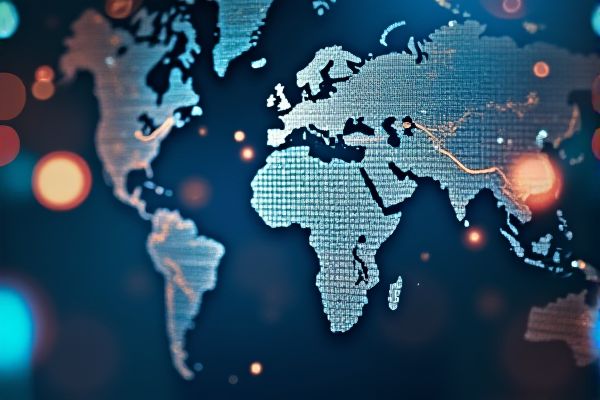
AI enhances the tourism experience through personalized travel recommendations based on user preferences and behavior patterns. Chatbots and virtual assistants provide 24/7 customer support, helping travelers find information quickly without waiting for human assistance. AI-driven analytics enables businesses to predict trends, optimize pricing strategies, and improve inventory management. Smart technologies, such as facial recognition and IoT devices, streamline check-ins and enhance safety measures, ensuring a smooth journey for travelers.
AI usage in tourism
Personalized travel recommendations
AI usage in tourism can lead to personalized travel recommendations that enhance customer experience. For example, AI algorithms analyze data from platforms like TripAdvisor to suggest destinations tailored to individual preferences. This approach increases the likelihood of satisfaction and can result in repeat business for travel agencies. Travelers can explore options they might not have considered, leading to unique experiences and potentially higher spending.
Virtual reality tours
AI is transforming the tourism industry by providing virtual reality tours that enhance the travel experience. For instance, companies like Oculus offer immersive experiences that allow potential travelers to explore destinations before booking. This technology can increase customer engagement and satisfaction, leading to higher conversion rates for travel agencies. The potential for reduced booking uncertainties presents a significant advantage for both businesses and consumers in the tourism sector.
AI-powered chatbots for customer service
AI-powered chatbots can significantly enhance customer service in the tourism sector by providing instant responses to inquiries. For instance, hotels like Marriott utilize these chatbots to assist guests with booking and provide information about local attractions. This technology offers the possibility of improved customer satisfaction, as travelers can receive assistance at any time. The chance for businesses to streamline operations and reduce response times is another potential advantage of implementing AI in tourism.
Predictive analytics for demand forecasting
Predictive analytics in tourism can enhance demand forecasting, allowing businesses to optimize pricing and inventory management. By analyzing historical data, such as hotel booking trends and flight schedules, companies can anticipate customer preferences and market fluctuations. For instance, a hotel chain may use these insights to adjust room rates during peak seasons. This capability can lead to increased revenue and improved customer satisfaction through tailored offerings.
Automated booking systems
Automated booking systems in tourism can significantly enhance efficiency and user experience. For example, systems developed by companies like Booking.com allow users to secure reservations quickly and reliably. This technology has the potential to reduce operational costs for businesses while increasing customer satisfaction. As adoption grows, the chance of streamlined travel planning and personalized recommendations could make AI a vital asset in the tourism industry.
Sentiment analysis of customer feedback
AI can enhance tourism by analyzing customer feedback through sentiment analysis, offering insights into traveler preferences. For instance, a hotel chain like Marriott could leverage this data to improve guest experiences. The understanding of sentiment can lead to tailored services, increasing customer satisfaction and loyalty. Implementing AI in this context presents a chance for businesses to gain a competitive edge in the tourism industry.
Image recognition for tourist attraction identification
AI can utilize image recognition technology to identify tourist attractions, enhancing travelers' experiences. By analyzing images uploaded by users, AI can recommend nearby sites or activities based on visual content. For example, a tourist taking a picture of the Eiffel Tower could receive suggestions for similar landmarks, museums, or parks in Paris. This capability increases the likelihood of discovering hidden gems and optimizing travel itineraries.
Language translation tools
AI usage in tourism can enhance customer experience through personalized recommendations and virtual tours. Language translation tools can bridge communication gaps, making it easier for travelers to interact with locals and understand cultural nuances. The integration of AI in booking systems may streamline processes, allowing for quicker reservations and improved user satisfaction. Organizations like Booking.com showcase how these technologies can optimize travel planning and enhance overall trip enjoyment.
Smart itinerary planning
AI usage in tourism can enhance smart itinerary planning by analyzing traveler preferences and historical data. For example, platforms like TripIt utilize AI algorithms to suggest optimized routes and activities based on user interests. This technology allows for a more tailored travel experience, potentially increasing customer satisfaction. By leveraging AI, tourism companies might improve operational efficiency and better allocate resources, creating a competitive advantage.
Facial recognition for security and check-in processes
AI usage in tourism can enhance efficiency and security in various ways. Facial recognition technology offers quick check-in processes at airports or hotels, streamlining guest arrivals. This can lead to improved customer satisfaction as well as reduced wait times. Institutions like major airlines are increasingly adopting these technologies to enhance operational advantages.
 techknowy.com
techknowy.com